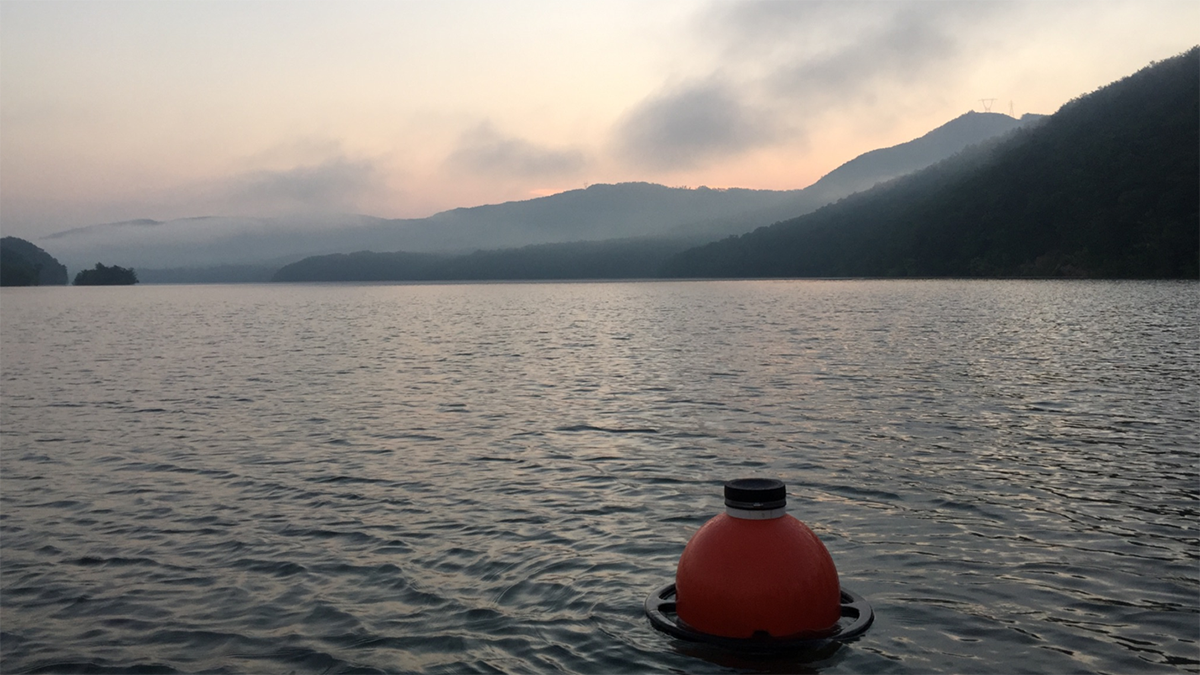Editors’ Vox is a blog from AGU’s Publications Department.
Ecological forecasting is crucial for proactive environmental management and policy-making.
Ecological forecasting is crucial for proactive environmental management and policy-making. In 2001, Clark et al. identified ecological forecasting as an emerging imperative, providing a vision whereby predictions of the future with specified uncertainty enable the anticipation of changes in ecosystems. Ideally, forecasts are then integrated into natural resource decision-making to mitigate adverse effects, enhance resilience, and promote sustainability. Since 2001, the field of ecological forecasting has grown, highlighted by a rapidly increasing number of papers in the literature over time (Lewis et al., 2022).
To highlight both previously published and new research, we, with the support of the Ecological Forecasting Initiative, have launched a special collection titled, “Ecological Forecasting in the Earth System” that showcases advances in the field of ecological forecasting and provides guidance and inspiration for the broader research community.
The special collection brings together cutting-edge research that develops, tests, and applies models to forecast ecological dynamics across systems and scales or advances fundamental frameworks and methods associated with the iterative ecological forecast cycle (Dietze et al., 2018). The ecological systems and scales include marine, freshwater, and terrestrial ecosystems, and dynamics at the population, community, ecosystem, regional, and global scales. Forecasting applications can include, but are not limited to, biogeochemistry, ecohydrology, water quality, phenology, biodiversity conservation, invasive species, vector-borne disease, land-use, and natural climate solutions.
We are excited to present this joint special collection between the American Geophysical Union (AGU) and the Ecological Society of America (ESA).
To encompass a wide range of environmental disciplines, we are excited to present this joint special collection between the American Geophysical Union (AGU) and the Ecological Society of America (ESA), thereby allowing contributors to submit articles to the journal that is most appropriate for their field. Instead of siloing ecological forecasting in a single journal, we aim to promote the power of forecasting across disciplines, journals, and scientific societies.
Here, we define ecological forecasts as near-term (i.e., a day to decade ahead) predictions that include estimates of uncertainty (Dietze et al., 2018). Forecasts should be evaluated using data, which can include the use of reforecast analyses (i.e., forecasts of conditions that have already passed but using only model inputs that would have been available if the forecast had been generated in real-time). Forecast uncertainty associated with predictions should be represented and communicated in submitted manuscripts, as absolute knowledge of the future does not exist. Uncertainty can arise from various sources, including the initial starting conditions of a model, model input and drivers (e.g., ensemble weather forecast inputs for an ecological model), model parameters, model structure, and model selection (e.g., multi-model ensembles). In this special collection, if model scenario uncertainty is presented, it should be provided in addition to other sources of uncertainty.
The larger ecological forecasting enterprise encompasses model development, data-model integration, computation, decision support, and education. Manuscripts that are not themselves descriptions and evaluations of ecological forecasts are welcome, provided they highlight direct connections to forecasting. These connections could highlight novel methodologies (e.g., machine learning, process-modeling, uncertainty quantification, digital twins, inverse modeling); interdisciplinary approaches (e.g., co-produced forecasts, integration with decision science, forecast dashboard design, forecast cyberinfrastructure); approaches for forecast delivery and education; and multi-forecast syntheses to enhance the accuracy, uncertainty representation, evaluation, and applicability of ecological forecasts.
This collection aims to inspire further research and collaboration, ultimately contributing to more informed and effective environmental stewardship.
Overall, this special issue is timely as it coincides with a growing recognition of the need for predictive science in environmental decision-making. By showcasing the latest advancements and applications in ecological forecasting, this collection aims to inspire further research and collaboration, ultimately contributing to more informed and effective environmental stewardship.
The AGU journals included in the Special Collection are Journal of Geophysical Research: Biogeosciences, Journal of Geophysical Research: Machine Learning and Computation, Water Resources Research, Journal of Advances in Modeling Earth Systems, and Journal of Geophysical Research: Oceans. The ESA journals included are Ecology, Ecological Applications, Ecological Monographs, Ecosphere, Frontiers in Ecology and the Environment, and Earth Stewardship.
To submit to an AGU journal please use the standard submission portal for the appropriate journal and select the collection title from the drop-down menu in the Special Collection field of the submission form. To submit your manuscript to an ESA publication, use the standard submission portal and indicate the collection title in the cover letter. Queries to the organizers to share your topic proposal and/or abstract prior to submission are encouraged through our inquiry form.
—R. Quinn Thomas ([email protected], ![]() 0000-0003-1282-7825), Virginia Tech, United States, Associate Editor of JGR: Biogeosciences and special collection organizer; Cayelan C. Carey (
0000-0003-1282-7825), Virginia Tech, United States, Associate Editor of JGR: Biogeosciences and special collection organizer; Cayelan C. Carey (![]() 0000-0001-8835-4476), Virginia Tech, United States, special collection organizer; Eric R. Sokol (
0000-0001-8835-4476), Virginia Tech, United States, special collection organizer; Eric R. Sokol (![]() 0000-0001-5923-0917), National Ecological Observatory Network, United States, special collection organizer; Melissa A. Kenney (
0000-0001-5923-0917), National Ecological Observatory Network, United States, special collection organizer; Melissa A. Kenney (![]() 0000-0002-2121-8135), University of Minnesota, United States, special collection organizer; Michael C. Dietze (
0000-0002-2121-8135), University of Minnesota, United States, special collection organizer; Michael C. Dietze (![]() 0000-0002-2324-2518), Boston University, United States, special collection organizer; and Marguerite A. Xenopoulos (
0000-0002-2324-2518), Boston University, United States, special collection organizer; and Marguerite A. Xenopoulos (![]() 0000-0003-2307-948X), Trent University, Canada, Editor-in-Chief of JGR: Biogeosciences
0000-0003-2307-948X), Trent University, Canada, Editor-in-Chief of JGR: Biogeosciences

